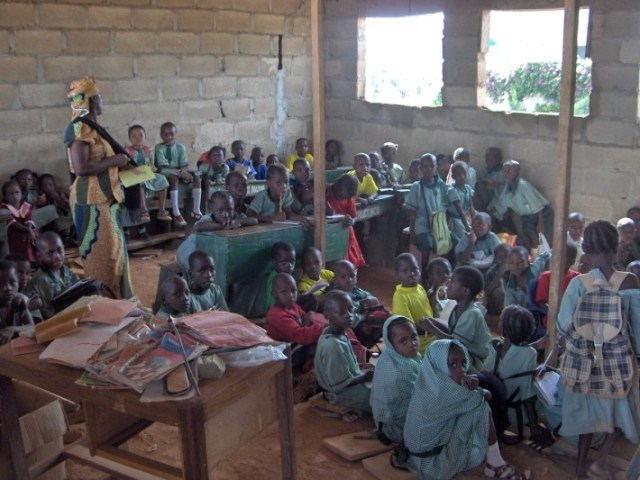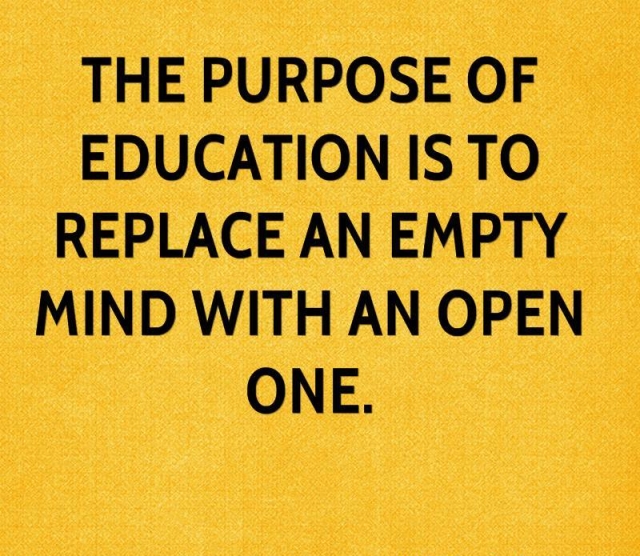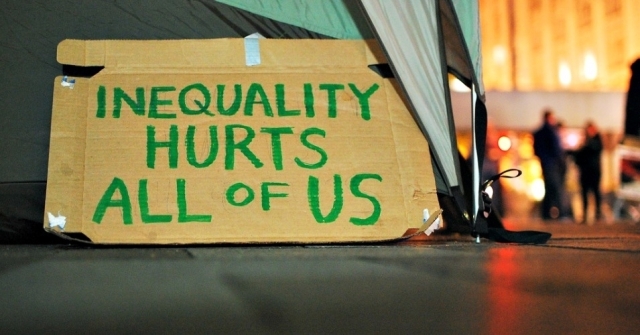
As our nation marks the 20th anniversary of nonstop civilian rule and return of the country to democracy, it’s only fair to reflect on the journey so far and how the country has fared over the past 20 years. A lot of progress has been made so far, I believe. For example, our elections are improving, we enjoy relative freedom of speech and expression, and we are almost at par with other countries in the global world in terms of access to information (Internet of Things and the likes). All that being said however, and quite unfortunately, on a much broader scale, the country is ever more retrogressing and is becoming increasingly difficult for the vast majority of ordinary Nigerians. Hopelessness is at all time low, unemployment dangerously high, infrastructure abysmal, National security in shambles, education and healthcare at very deplorable states and justice very difficult to come by -all potent recipes for failure of a state. It is my opinion that this has a lot to do with how the system was structured in 1999 and therefore calls for serious reflections and possible revisiting in order for our country to make headway.
Prior to 2015, I, like many other young Nigerians, was so naive as to think that Nigeria as structured in 1999 will have any meaningful change with just a change of government. From PDP to APC, from looters to people of integrity, with just the flick of a wand. How simplistic, crudely reductionist and naive? Thankfully, now most of us know better!

So many events and happenings, actions and inactions that occurred post 2015 Nigeria have led me to some deep reflections on so many fundamental issues and problems bedeviling Nigeria as a system so much so that it is now crystal clear to me, that regardless of whoever becomes president, as long as we maintain the current system of government, patronize the same set of politicians, have the same structure and mentality, Nigeria will change no more than the name of ‘swallow’ changes from “Tuwo” to “Amala” depending on the ingredient used. “swallow na swallow na!”. True to that, the Hausa man says; “Ba a chanza wa tuwo suna”, which loosely translates to; ‘The name of “tuwo” can never be changed no matter how well prepared it is’. I believe you’ll get the metaphor.
We’d only be wasting our time and energy campaigning for one individual or the other, this party or the other when in reality, they are all products of the same system, birds of the same feather making the same promises over and over again with very little to no understanding of the fundamental problems of Nigeria and the possible ways forward. Even if they have this realization, the system as structured in 1999 makes it very difficult for any radical change for the better.
At the price of sounding overly pessimistic, I believe that Nigeria’s problems are so pervasive and deeply rooted that mere recycling of old politicians or even new ones (they are almost all the same!) by way of the ballot will not change anything. This is not to discourage anyone who thinks otherwise as I am simply stating my opinion from the angle from which I analyze Nigeria and its problems.

I may sound a bit radical in the next few lines, but truth be told, insofar as we aspire to join our rightful position among the great countries of this world, we need, I dare say, to make radical changes in the political structure, constitution as well as the system of government in the country. In other words, more than ever before, this country needs complete restructuring in the full meaning of the word not just the political meaning accorded to it by many of its proponents currently where every region or ethnic nationality has its interpretation of restructuring from their various reductionist perspectives of regionalism, ethnicity or tribalism.
Depressingly enough, the only people with the power to influence the needed change are so much dependent on the inefficiency of the system that they are sure to forestall any meaningful overhaul. This is besides the fact that the system was by design very impervious to reform with no room for tweaking it to reflect changing and evolving problems facing the country. Whether this was done intentionally by the designers of 4th republic Nigeria remains to be explored by deeper analysis of the country’s history especially around 1998-1999. Be that as it may, this writeup serves to -however little- offer some insights into some of our most fundamental problems from my humble vantage point.
First of all, I have come to the fundamental conclusion that we will never reach the promised land so long as we continue the presidential system specifically and the model of governance we operate generally; the so called three tier system that the founding fathers of this current dispensation so ignorantly copied and pasted from other climes without regards for our complexity as a nation. It is too simple for our complexity as a nation, too expensive for our resources and too centralized for our real needs as a people.

It is very outrageous when you look critically at how the President, his aides, his ministers and theirs on one hand then the Senators and Members of House of Assembly on the other hand consume such a huge fortune of our collective wealth for their upkeep and welfare when, a single government as obtained in the parliamentary system for example could certainly do better, or at worse do same with less cost to our common wealth. This has made governance so expensive, laws and legislations – that should be very flexible with regards to time and prevailing circumstances- so rigid, policy and decision making so slow and laced with vested interests at every step of the way, and government so centralized among very few individuals at the expense of general public interest.

Credit: Mike Asukwo
I can’t help but mention at this point that the period of transition between 1998-1999 was a great missed opportunity for our country for setting the course of our development. Sadly, those saddled with that responsibility just copied and pasted everything from countries whose systems of governments have gradually evolved after years of modifications to suit their realities and whose histories and demographics are very dissimilar to ours. This is the main cause of our snail paced development compared to our peers when compared at the turn of the millennium.
It is this same reason that regardless of who gets elected, PDP or APC or whatever party this system may produce, however good their intentions or desire to bring real and meaningful change, they still have a very recalcitrant system of inflexible legislation protected by ineffectual and self-serving collection of visionless politicians as members of the Senate or House of Representatives that will always make sure to block whatever policy that will deprive them of the perks of being our representatives. This is the same reason why no meaningful, people oriented constitutional review has taken place since 1999. One eventually loses count of the number of committees set up for constitutional review by each successive legislative cohort.
A leaner system, say a parliamentary one, though quite Herculean of a task owing to the tight grip with which the ruling elites hold us all hostage solely for their personal interests, will ensure better representation, lesser cost of governance and or more people -rather than politicians- oriented public policy.
The entire geo-political structure of the country also needs serious revisiting with all options on table as regards the future of the corporate entities of the country even if it means renegotiating the terms of the union or more radically, separation. This may sound a bit radical, but if we are to be truthful to ourselves, we all know that Nigerian nation as a project is not working. And this has a lot to do with our complexities though very much surmountable if we would create our own peculiar solutions to our complex problems.

Sadly, the politicians, with the willing help of some of our hypocritical clergymen have over the years succeeded in brainwashing ordinary Nigerians to always see and analyze things through the simplistic prism of the politics of us vs them; Muslims vs Christians, Northerner vs Southerners etc in order for them to continue exploiting our differences to their advantage while in actual sense, ethnicity, tribalism or religion of the ‘others’ aren’t our major problems but the system itself that is rigged to, by design, favor the elites and the ruling class at the expense of the majority.

If you’ve been analyzing the Nigerian public sector critically for long, you will agree with me also that it is almost impossible for any leader elected on the existing system to help us achieve any meaningful leap forward with the entire civil service in shambles. Please don’t mistake this to be in anyway a subtle way to create excuses for the current administration’s colossal ineptitude, cluelessness and ‘focuslessness’, far from it! the administration at its inception had all the public goodwill and support to make some difference even with the imperfect system but unfortunately made terrible and costly mistakes from the word go largely due to their unpreparedness.
No public system in Nigeria is currently viable. A vast majority of our agencies are completely dysfunctional to say the least, with little or no value added to the country and/economy. Most were simply created to make vacancies available for well-connected Nigerians to work for government and get paid for doing nothing and to also make public funds available for siphoning by the ruling elites in the form of inflated contracts, corrupt outsourcing of services, and outright graft.
This has a lot to do with how over the years, we lack the leaders with the right understanding of what job and opportunity creation is all about. Most of them think that Nigerian unemployment problems can be solved by creating more government agencies hence their only idea to job creation over the years has been the unending creation of one institute after the next commission or one board after the other agency with sometimes conflicting and overlapping functions. It is not an uncommon finding to see our legislators sponsoring bills for the creation of such new government agencies and marking such as their achievements when in fact they are just contributing to further deepening Nigeria’s fiscal problems and by extension making the system more complex for reform.

Nigeria needs now, more than at any other period in the past, a sober refection on its journey so far. Especially as it is one of the fastest growing countries in the world in terms of population at a time when it currently is the country with the highest proportion of people living in extreme poverty. The ruling class/elites must realize that Nigeria’s problems are systemic and require system approach to adequately solve not just their current knee jerk approach.

This may entail a complete hard reset in its public service system, complete redefinition of the purpose, mission and operational philosophy of every aspect of its huge, big-for-nothing civil service, leaner and decentralized systems of governance, long term focused and oriented and public policies, and more importantly, sincere and visionary leadership to enable it to retrace its steps and find the right path to meaningful development. Though hopeless a wish, given the apparent cluelessness of our leaders, anything short of that is just akin to treating symptoms rather than addressing the main infirmity and will only complicate matters more when the country eventually and inevitably completes its trajectory of failure.



















